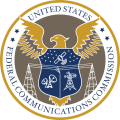The FCC, or Federal Communications Commission, is an independent regulatory agency of the United States government responsible for regulating and overseeing various aspects of communication technologies, including radio, television, wire, satellite, and cable communications. The FCC’s primary mission is to ensure efficient, reliable, and fair communication services for the public, while also promoting competition, innovation, and technological advancement in the communication sector.
Key responsibilities and roles of the FCC include:
Spectrum Allocation: The FCC is responsible for allocating and managing radio frequency spectrum for various communication services, including broadcasting, wireless communication, satellite services, and more. It conducts auctions and determines rules for spectrum use to ensure efficient utilization and prevent interference.
Licensing and Regulation: The FCC issues licenses and permits for various communication services, such as radio and television stations, wireless carriers, satellite operators, and cable providers. It enforces rules and regulations to maintain fair competition, protect consumers, and ensure quality service.
Media Regulation: The FCC regulates broadcast media, including television and radio, to ensure that programming serves the public interest, meets certain content standards, and adheres to community-specific guidelines.
Telecommunications: The FCC oversees telecommunications services, including landline and wireless telephone services, broadband internet access, and Voice over IP (VoIP) services. It promotes competition, consumer protection, and access to communication services.
Consumer Protection: The FCC works to protect consumers by addressing issues such as robocalls, telemarketing, consumer privacy, accessibility for people with disabilities, and broadband access in underserved areas.
Technical Standards: The FCC establishes technical standards for communication equipment to ensure interoperability, safety, and compliance with regulations.
Public Safety: The FCC plays a role in ensuring that communication networks and services are reliable during emergencies and disasters, including coordinating with emergency services and first responders.
Internet Policy: The FCC has been involved in shaping internet policy, including net neutrality regulations that aim to ensure equal treatment of internet traffic by service providers.
International Coordination: The FCC works with international bodies to harmonize spectrum allocation and communication regulations, ensuring that global communication services operate smoothly across borders.
Enforcement: The FCC enforces its rules and regulations through investigations, fines, and other enforcement mechanisms to prevent violations and maintain order in the communication industry.
The FCC’s decisions and actions have a significant impact on various industries, from telecommunications and broadcasting to emerging technologies such as 5G, satellite communications, and the internet of things. Its regulatory oversight plays a crucial role in shaping the communication landscape in the United States.
